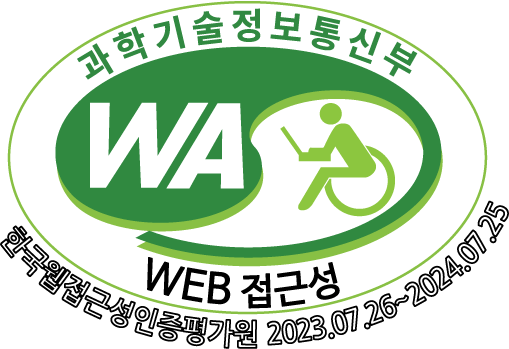관련자료
[PKO] 아프리카지역 평화유지활동 강화 관련 안보리 공개토의 발언문(함상욱 주유엔 차석대사)
- 부서명
- 유엔과
- 작성일
- 2018-11-20
- 조회수
- 1545
Statement by H.E. Ambassador Ham Sang Wook
Deputy Permanent Representative of the Republic of Korea
at the Security Council Open Debate on Peace and Security in Africa: Strengthening Peacekeeping Operations in Africa
21 November 2018
Thank you Mr. President. Let me begin by thanking you for convening today’s open debate on strengthening peacekeeping operations in Africa. I also wish to thank Secretary-General Guterres and Commissioner Chergui for their informative briefings.
Mr. President,
Given the complex, interconnected nature of today’s global challenges, there is wide recognition that the UN alone cannot maintain peace and security around the globe.
At the same time, in recent years, there are a growing number of actors with a better grasp of the realities on the ground, resources and expertise to address the peace and security challenges in Africa.
Building strong, strategic partnerships with such actors is now an imperative. As the Secretary-General said, the world already has the resources to deliver. The UN, which has a brand like no other, is best placed to convene and coordinate these different actors.
It is in this context that we welcome that more than 150 Member States and regional organizations endorsed the Declaration of Shared Commitments of Peacekeeping, which aims to make peace operations more fit for purpose by enhancing collaboration between the UN and relevant actors.
The role of regional and sub-regional organizations in Africa has become especially important in implementing these shared commitments. Since it was established nearly two decades ago, the AU, in particular, has been making considerable progress in strengthening ownership and enhancing its capacity to promote peace and security in the continent. Regional economic communities (RECs) have also been playing an increasingly proactive role in their respective regions. Most notably, ECOWAS took the lead to help resolve the political crises in The Gambia in late 2016 and deployed forces to maintain stability in the country.
The comparative advantage of regional and sub-regional organizations vis-à-vis the UN has been particularly evident in peace enforcement and counter-terrorism operations. A clear division of labor of these activities would allow the UN to better focus on its core mandate of peacekeeping.
We, therefore, join others in calling the UN to work more effectively with these regional actors by providing the necessary support in line with Chapter VIII of the UN Charter. In this regard, we welcome the recent progress made in enhancing the strategic partnership between the UN and AU, including the signing of the joint UN-AU Framework for an Enhanced Partnership in Peace and Security. It is also encouraging to note the greater number of joint briefings and field visits of senior officials of the two institutions.
Going forward, I wish to highlight three areas where we would like to see further progress. First, it would be important for the AU and UN to work together more strategically to facilitate sustainable political solutions on the ground. Based on a joint analysis and assessment of the situation, the mandates of UN and AU peace operations should be designed as part of a broader common political strategy. We hope that the ongoing reforms at the UN and AU will allow the two organizations to better achieve this end.
Second, we encourage the Security Council and the AU Peace and Security Council to closely align their agenda, while convening more regular meetings between the Councils to make effective joint decisions and actions.
Third, there is a need to provide predictable, flexible and sustainable financing for AU-led peace operations, as recognized by the Security Council and the wider membership through the Declaration of Shared Commitments. We positively view the Council’s intention in resolution 2378 to consider practical steps to finance AU-led peace operations through UN assessed contributions on a case-by-case basis, provided that the standards ensuring oversight and accountability are met.
In this regard, we welcome the progress that the AU, in close cooperation with the UN, has been making to develop compliance and reporting frameworks. We also welcome AU’s initiative to enhance its financial self-reliance by revitalizing the AU Peace Fund, and meet its commitment to fund 25% of African peace operations.
We understand that the UN and AU will soon present a joint roadmap to address existing concerns on the accountability and compliance frameworks. We hope that these initiatives, including the draft resolution on financing of AU-led peace operations to be tabled by the A3 next month, will help to move the discussions forward.
Mr. President,
Next year, the Republic of Korea is expected to join the ranks of the top ten financial contributors to the UN peacekeeping budget for the first time. We feel a greater sense of responsibility to ensure that peacekeeping operations remain an effective tool to maintain peace and security in Africa.
In addition to deploying troops to South Sudan, we have been supporting AU’s efforts to strengthen its capacity to maintain peace and security through the AU Peace Fund. More specifically, we deployed a level-two hospital in Gao, Mali last July, and are now supporting the Continental Logistics Base of the African Standby Force (ASF) in Cameroon, which will provide the adequate infrastructure for rapid deployment of African troops. And to enhance women’s participation in AU peace operations, we are helping to build the necessary capacity within the Commission.
In closing, I wish to assure you of my Government’s commitment to play its due part in strengthening peace operations in Africa. Thank you.
- 메뉴담당부서
- 유엔과
- 전화
- 02-2100-7243


